Agenda | Logistics | Speakers | Participants | Program Organizers | Past Event | Supplementary Material
The Science of Alzheimer’s Disease and Alzheimer’s Disease Related Dementias (AD/ADRD) for Social Scientists Program is a unique two-day series of lectures featuring nationally recognized interdisciplinary experts in the ADRD field. Experts deliver scientific lectures tailored to social scientists, covering recent breakthroughs in Alzheimer’s therapies, risk factors, biomarkers, and genetics.
The program offers social scientists at all levels the opportunity to learn about the biomedical, clinical, and social issues of ADRD to inform their research by:
- Providing a vocabulary for engaging in meaningful dialogue with the biomedical community.
- Helping participants recognize key issues in biomedicine and make the best use of available data.
- Providing a valuable screen of significant studies to identify the most salient details.
- Providing examples on how to incorporate biomedical and clinical concepts to social science research.
- Serving as a forum where participants can ask experts questions tailored towards their social science interests.
The program is hosted by the Center for Advancing Sociodemographic and Economic Study of Alzheimer’s Disease and Related Dementias (CeASES-ADRD) and USC Alzheimer’s Disease and Alzheimer’s Disease Related Dementias Resource Center for Minority Aging Research (USC AD/ADRD RCMAR) through funding from the National Institute on Aging, award numbers P30AG066589 and P30AG043073.
The two-day program will take place at USC’s University Park Campus in Los Angeles, California on March 7-8, 2024.
- Date: March 7-8, 2024 (time: March 7, 8am-5pm; March 8, 8am-2pm)
- Location: 705 W 34th St, Los Angeles, CA 90089
Agenda
Please click here to view the 2024 agenda.
For programmatic questions, contact Johanna Thunell.
Logistics
Venue Details
- Location: University Club Scriptorium, USC
- Address: 705 W 34th St, Los Angeles, CA 90089
Hotel Info
- Location: USC Hotel
- Address: 3540 S Figueroa St, Los Angeles, CA 90007
- Check-in time: 3:00 pm
- Check-out time: 11:00 am
If you need any special accommodations (e.g. an early check-in time or late check-out time) please reach out to Haley Garland (hgarland@usc.edu).
Travel and Reimbursements
The program will cover airfare expenses up to $500 and offer hotel accommodations for participants traveling from outside the Los Angeles area. Local participants will receive ground transportation and parking support. Please save all receipts and send them to Haley Garland (hgarland@usc.edu) in one email. Make sure that participant’s name, proof of payment, and the purchase total are clearly visible on the receipt. Screenshots of receipts (e.g. Uber) will be accepted. Please ensure to include a copy (physical or screenshot) of the boarding pass. Participants will be reimbursed after the event.
2024 Science of ADRD Speakers
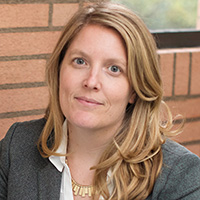
Jennifer Ailshire, PhD
Jennifer Ailshire, PhD, is Associate Professor of Gerontology and Associate Dean of Research at the University of Southern California, Leonard Davis School of Gerontology. She also co-directs the USC/UCLA Center on Biodemography and Population Health and the USC AD/ADRD Resource Center for Minority Aging Research. Ailshire’s research has demonstrated the importance of physical and social environments, and their interactions, in determining health and wellbeing in older adults. Her current lines of research include examinations of the role of air pollution and extreme heat in cognitive health and dementia risk. She is the architect of the Contextual Data Resource (CDR), which can be linked to longitudinal studies of aging in the U.S. to facilitate examination of socioenvironmental determinants of health and aging. Dr. Ailshire is currently expanding the CDR for researchers interested in understanding the role of the exposome in dementia and AD/ADRD risk. Dr. Ailshire earned her PhD in sociology at the University of Michigan.
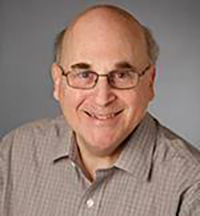
Paul Aisen, MD
Paul Aisen, MD, is a Professor of Neurology at the University of Southern California, Keck School of Medicine. He also serves the founding director of USC Alzheimer’s Therapeutic Research Institute (ATRI). Dr. Aisen has been a leading figure in Alzheimer’s disease research for more than two decades, having developed novel methodologies and designed and directed many large therapeutic trials. After serving as chief medical resident at Mount Sinai, he began a solo practice in internal medicine and rheumatology in New York. Aisen joined the faculty of Mount Sinai in 1994 and was recruited to Georgetown University in 1999 as a professor of neurology and medicine. That year, he founded the Memory Disorders Program, a clinical and research program for Alzheimer’s disease and related disorders. He continued basic research studies on therapeutic targets and biomarkers and designed and directed multicenter therapeutic trials. He became vice chair of the Department of Neurology at Georgetown in 2004. From 2007 through 2015, he was professor in the Department of Neurosciences at the University of California, San Diego and director of the Alzheimer’s Disease Cooperative Study. He received his MD from Columbia University. He completed his residency at Case Western Reserve University in Cleveland and Mount Sinai Medical Center in New York, and then fellowship training in rheumatology at New York University.

David Bennett, MD
David A. Bennett, MD, is the Robert C. Borwell Professor of Neurological Sciences at Rush University, Department of Neurological Sciences. He also serves as the director of the Rush Alzheimer’s Disease Center (RADC). The RADC studies a wide range of common chronic conditions of aging, including Alzheimer’s disease, stroke, Parkinson’s disease, in addition to sleep and circadian rhythms, neuro- and behavior economics, decision making and well-being, and incorporates claims data. Studies range from community-based epidemiologic studies that incorporate molecular genomics, imaging and biomedical devices, to phase I-IV clinical trials. Dr. Bennett is internationally known for his research and is principal investigator of several studies funded by the National Institute on Aging, including the Religious Orders Study, the Rush Memory and Aging Project, and the Pathology Alzheimer’s and Related Disorders Study in Sao Paulo Brazil. Dr. Bennett leads projects designed to identify novel therapeutics for common neurologic diseases. He serves on numerous national and international advisory and editorial boards. He previously served as a member of the National Advisory Council on Aging for the National Institute on Aging. He has more than 1,300 peer-reviewed manuscript publications with more than 210,000 citations and an h index = 214. He received the Potamkin Prize in 2018, the most prestigious research award for dementia research.
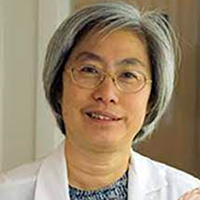
Helena Chang Chui, MD
Helena Chui, MD, is currently the Raymond and Betty McCarron Professor of Neurology and Gerontology, and since 2003, Chair of the Department of Neurology at the University of Southern California, Keck School of Medicine. The Department provides comprehensive outpatient and inpatient services for the full spectrum of neurologic conditions, conducts medical research, and trains the next generation of neurologists. She has considerable expertise in clinical, neuroimaging, and pathological evaluation of patients with cognitive impairment and dementia. Dr. Chui is internationally recognized for her research in Alzheimer disease and vascular cognitive impairment. She serves as multi-principal investigator for the NIA-funded Alzheimer Disease Research Center. She is the author of more than 225 peer-reviewed publications and 40 book chapters/review articles. She has served on the editorial board for Stroke, Alzheimer Disease and Associated Disorders, Archives of Neurology, and JAMA Neurology. Among her many honors are Best Doctors, Connolly’s Top Doctor, the Alzheimer Association Research Award (1991), California Science Center Muses Woman of the Year Award 2007, and USC Keck Excellence in Professionalism Award in 2018. Dr. Chui earned her MD at Johns Hopkins University. She completed an internship, fellowship and residency in neurology at the University of Iowa in 1981, and is Board-certified in Neurology.
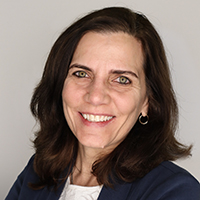
Maria Corrada, ScD
María Corrada-Bravo, ScD, is a Professor at the University of California, Irvine, Department of Neurology and Department of Epidemiology and Biostatistics. She is also leader of the 90+ Core at the UCI Alzheimer’s Disease Research Center. Early in her career, she worked on projects involving the Baltimore Longitudinal Study of Aging, including some of the earliest prospective studies of estrogen replacement therapy, non-steroidal anti-inflammatory drugs, and folate as protective factors for Alzheimer’s disease. She moved to UCI to help establish The 90+ Study, for which she is a multiple principal investigator. The 90+ Study is a longitudinal epidemiological study of aging and dementia of more than 2,000 well-characterized people aged 90 years and older. Some of her most important contributions have been estimating prevalence and incidence of dementia, as well as investigating the role of multiple pathologies to dementia in this age group. In addition, Dr. Corrada is multiple principal investigator for Life After 90 a recently established life-course study of cognitive impairment and dementia in a racially and ethnically diverse cohort of over 1,000 people aged 90 and older in Northern California. Dr. Corrada’s research interests include population-based longitudinal studies, the epidemiology of dementia, and through imaging and autopsy studies, identifying factors that correlate with the presence of brain pathologies. Much of her work has been dedicated to understanding the cognitive and physical health of the oldest-old, a rapidly growing, but understudied population. She received her PhD in psychiatric epidemiology at the Johns Hopkins School of Public Health in Baltimore, MD.
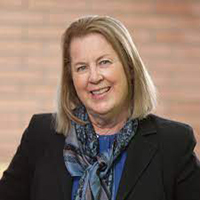
Eileen Crimmins, PhD
Eileen Crimmins, PhD, is the AARP Chair in Gerontology, and University Professor at the University of Southern California, Leonard Davis School of Gerontology. She co-directs the USC/UCLA Center on Biodemography and Population Health, the NIA sponsored Biomarker Network, and the Multidisciplinary Research in Gerontology Training Program. She is a member of the National Academy of Sciences, the National Academy of Medicine, and a fellow of the American Association for the Advancement of Science and the American Academy of Arts and Sciences. Crimmins’ research is in the area of factors promoting healthy aging and healthy life expectancy. She has received the Kleemeier award for research from the Gerontological Society of America and the Matilda White Riley Distinguished Scholar Award from the Section on Aging and the Lifecourse of the American Sociological Society; and the Taeuber Award for research from the Population Association of America. Dr. Crimmins received her PhD in demography from the University of Pennsylvania.
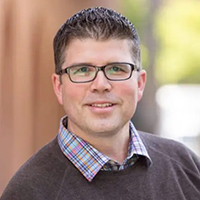
Sean Curran, PhD
Sean Curran, PhD, is a Professor and the Vice Dean of Faculty and Research at the University of Southern California, Leonard Davis School of Gerontology. In addition, Dr. Curran serves as the James E. Birren Chair in Gerontology. His research focuses on understanding the regulatory control mechanisms that govern animal health across the entire lifespan. Decades of studies in the biology of aging have looked at extending lifespan as a measure of success. Although this approach has uncovered several potent regulators of animal lifespan, there are also examples of long-lived animals that exist in a decrepit state. Obviously, this was not the intent of biogerontologists as our actual goal is to increase health span, or the time of life spent in a healthy state. With this in mind, my research group has invested in defining molecular, genetic, and environmental factors that impact multiple parameters of health (resistance to environmental and dietary stress, mobility, metabolism, reproductive-fitness, and mitochondrial function) throughout life. Our goal then is not simply to push the limits of life expectancy, but rather to maximize the quality of health over the largest possible period of the lifespan. Our long-term goal is to generate blueprints that allow an individual to maximize health over the course of their lifespan. Informed by genetics, we develop the capacity to predict which diets are ideal for a healthy life and which should be avoided. Moreover, we investigate the mechanistic basis of the molecules, genes, and pathways we have discovered can influence healthspan. The product of this investment is the ability to use diet as a means to circumvent genetic predisposition and prevent or reduce the severity of age-related disease. Our research has benefited from the ability to quickly test several diet-gene pairs in C. elegans, which has allowed us to transition to directed studies in murine models. Although we will continue to exploit the utility of genetics and biochemistry of the worm, we expect that our mouse and cultured human cell approaches will synergize and provide relevant information for human aging. Dr. Curran received his PhD in biochemistry and molecular biology at the University of California, Los Angeles.
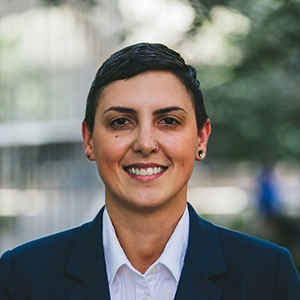
Stefania Forner, PhD
Stefania Forner, PhD, is Director, Medical & Scientific Relations at the Alzheimer’s Association®. Dr. Forner helps lead the Association’s Medical and Scientific grants team. As the world’s largest nonprofit funder of Alzheimer's research, the Association is currently investing more than $360 million in over 1,000 active best-of-field projects in 53 countries, spanning six continents. She provides leadership to the International Research Grant Program (IRGP), which funds investigations to advance our understanding of Alzheimer's disease, identify new treatment strategies, improve care for people with dementia, and further our knowledge of brain health and disease prevention. She also oversees numerous fellowship programs, including the Zenith Fellows Program and the Global Health Leaders Program alongside the Global Brain Health Institute. Dr. Forner holds a PhD and MSc in pharmacology from the Federal University of Santa Catarina, Brazil.
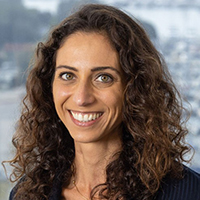
Neda Jahanshad, PhD
Neda Jahanshad, PhD, is an Associate Professor of neurology at the University of Southern California, Stevens Neuroimaging and Informatics Institute. She also serves as the director of the Laboratory of Brain eScience (LoBeS). Dr. Jahanshad has over ten years of experience in analyzing brain scans from large groups of individuals, and comparing magnetic resonance imaging (MRI) scans of people with and without brain disorders of all ages. Much of her research explores the brain as a network of interconnected pathways using diffusion-weighted MRI, a technology that reveals physical connections between different functional areas of the brain. Dr. Jahanshad is a key developer for the ENIGMA consortium, which brings together hundreds of researchers around the world. These researchers work together to identify the genetic and environmental risk factors that make the brain susceptible to disease. She earned a PhD from University of California, Los Angeles.
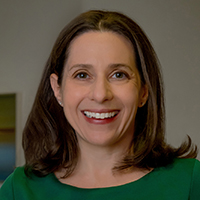
Jessica Langbaum, PhD
Jessica Langbaum, PhD, is Senior Director Research Strategy at Banner Alzheimer’s Institute where she oversees the Observational Research Program, Clinical Trials Program, and Alzheimer’s Prevention Initiative (API) departments. The API is an international collaborative program led by Banner Alzheimer’s Institute. As part of the API program, Dr. Langbaum directs the Alzheimer’s Prevention Registry and its GeneMatch program. She also serves as the Associate Director of the Arizona Alzheimer’s Disease Research Center Administrative Core and co-director of its Outreach, Recruitment and Engagement Core. Her research focuses on: (1) establishing the science of participant recruitment and retention for Alzheimer’s prevention studies, including designing and executing participant recruitment registries, (2) developing and testing novel and scalable methods for genetic and biomarker risk disclosure, and (3) designing and executing Alzheimer’s prevention trials, including developing sensitive composite cognitive test scores for use as primary endpoints in clinical trials. She has published nearly 100 papers and book chapters on these and related topics. She serves as Principal Investigator for several clinical trials and NIH funded programs. Dr. Langbaum serves on numerous national and international advisory boards. She received her PhD in psychiatric epidemiology from Johns Hopkins University. She completed her postdoctoral research fellowship at Banner Alzheimer's Institute.
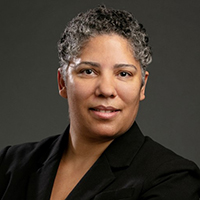
Jennifer Manly, PhD
Jennifer J. Manly, PhD is a Professor at Columbia University Irving Medical Center, Department of Neurology. Her research focuses on mechanisms of inequalities in cognitive aging and Alzheimer’s Disease. Her research team has partnered with Black and Latinx communities in New York City and around the United States to design and carry out investigations of structural and social forces across the lifecourse, such as educational opportunities, discrimination, and socioeconomic inequality, and how these factors relate to cognition and brain health later in life. She is the MPI of the Columbia Interdisciplinary Research Center on Alzheimer’s Disparities which focuses on mentoring early career scientists from minoritized backgrounds. Her research has been funded by the National Institutes of Health and the Alzheimer’s Association, and she has authored over 300 peer-reviewed publications and 10 chapters. She was the 2014 recipient of the Tony Wong Diversity Award for Outstanding Mentorship, was the recipient of the Paul Satz-International Neuropsychological Society Career Mentoring Award in 2020, and was named the Irving Institute for Clinical and Translational Research Senior Mentor of the Year in 2022. Dr. Manly was elected to the National Academy of Medicine in 2021. She served on the HHS Advisory Council on Alzheimer's Research, Care and Services from 2011 – 2015 and is a current member of the National Advisory Council on Aging. Dr. Manly received her PhD from the University of California, San Diego School of Medicine.
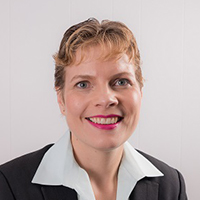
Priscilla Novak, PhD
Priscilla Novak, PhD, serves as a program officer at the National Institute on Aging. She manages a health services research portfolio within the Division of Behavioral and Social Research, Population and Social Processes Branch. Her federal career began at the Agency for Healthcare Research and Quality, where she worked on a variety of health systems’ topics including health IT, dissemination of Patient Centered Outcomes Research findings in women’s health, and teamwork training (TeamSTEPPS). In 2020 she led the award of the ‘Accelerating Change and Transformation in Organizations and Markets’ (ACTION 4) contract to enable field-based health services research. Her career includes roles at the National Cancer Institute, Office of Personnel Management, Leading Age, the Association of America Medical Colleges, Dell (contract with HHS’ Office on Women’s Health) and the Peace Corps in Bolivia. Her published research covers a range of topics including racial and ethnic health disparities, local health departments, and substance use and mental health. Dr. Novak received her PhD in health services from the University of Maryland, and a MPH from George Mason University.
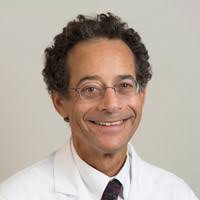
David Reuben, MD
David Reuben, MD, is Archstone Foundation Chair and Professor at the University of California, Los Angeles, David Geffen School of Medicine. He also serves as the Director of the UCLA Alzheimer’s and Dementia Care Program and of the Multicampus Program in Geriatrics Medicine and Gerontology. Dr. Reuben is a past President of the American Geriatrics Society and the Association of Directors of Geriatric Academic Programs. He served for 8 years on the American Board of Internal Medicine’s Board of Directors, including as Chair from 2010-2011. From 2016-2022, Dr. Reuben served as a trustee of the American Board of Internal Medicine Foundation. In 2000, Dr. Reuben received the Dennis H. Jahnigen Memorial Award for outstanding contributions to education in the field of geriatrics and, in 2008, he received the Joseph T. Freeman Award from the Gerontological Society of America. In 2012, he received the Henderson award from the American Geriatrics Society. In 2012, Dr. Reuben received one of the first CMMI Innovations Challenge awards to develop a model program to provide comprehensive, coordinated care for patients with Alzheimer’s Disease and other dementias. In 2018, he was awarded a multi-site PCORI- and NIA-funded pragmatic trial (D-CARE) to compare the effectiveness of health system-based dementia care versus community-based dementia care versus usual care. Dr. Reuben was co-chair of the 2020 National Research Summit in Care, Services, and Supports for Persons with Dementia and their Caregivers. He is a member of the National Advisory Council on Aging for the National Institute on Aging. Dr. Reuben continues to provide primary care for frail older persons, including attending on the inpatient geriatrics unit, and making house calls. In his spare time, Dr. Reuben has written 8 plays and lyrics for more than 20 songs with composer Sidney Sharp. A compilation of the first 10 has been recorded. Dr. Reuben received his MD from Emory University, School of Medicine.

Julie Zissimopoulos, PhD
Julie M. Zissimopoulos, PhD, is a Professor in the Sol Price School of Public Policy at the University of Southern California. In addition to her faculty appointment, she is a Senior Fellow and Co-Director of the Aging and Cognition Research Program and Research Training at the Leonard D. Schaeffer Center for Health Policy and Economics. She is Director of USC’s Alzheimer’s Disease and Alzheimer’s Disease Related Dementias Resource Center for Minority Aging Research, and Center for Advancing Sociodemographic and Economic Study of Alzheimer’s Disease and Related Dementias (CeASES-ADRD), both focused on reducing burden of Alzheimer’s disease and funded by the National Institute on Aging (NIA). Dr. Zissimopoulos’ current research focuses on economic costs of dementia, impacts of dementia on care partners, the use of and response to drug therapies for non-dementia conditions that influence risk of dementia; racial and ethnic disparities in diagnosis and health care treatment for dementia; and population measures of dementia using Medicare claims and survey data. Dr. Zissimopoulos received her PhD in economics from the University of California, Los Angeles.
Participants
Please click here to view the full list of 2024 participants.
Program Organizers
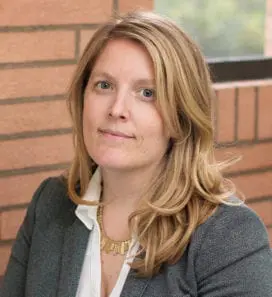
Jennifer A. Ailshire, PhD
Fellow, USC Schaeffer CenternAssistant Professor, USC Leonard Davis School of Gerontologyn2014-2015 RCMAR Scientist, USC Schaeffer Center

Julie Zissimopoulos, PhD
Associate Professor, USC Sol Price School of Public PolicynCo-Director, Aging and Cognition Research Program, USC Schaeffer CenternPrincipal Investigator, Center for Advancing Sociodemographic and Economic Study of Alzheimer’s Disease and Related Dementias (CeASES-ADRD) and USC Alzheimer’s Disease and Alzheimer’s Disease Related Dementias Resource Center for Minority Aging Research (USC AD/ADRD RCMAR)
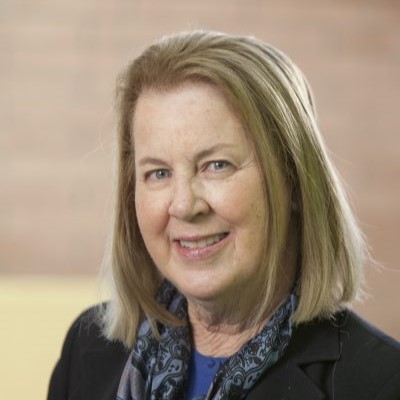
Eileen Crimmins, PhD
AARP Professor of Gerontology, USC Leonard Davis School of GerontologynAssociate Dean, USC Leonard Davis School of Gerontology, USC Andrus Gerontology CenternSenior Fellow, USC Schaeffer CenternDirector, USC/UCLA Center on Biodemography and Population Health
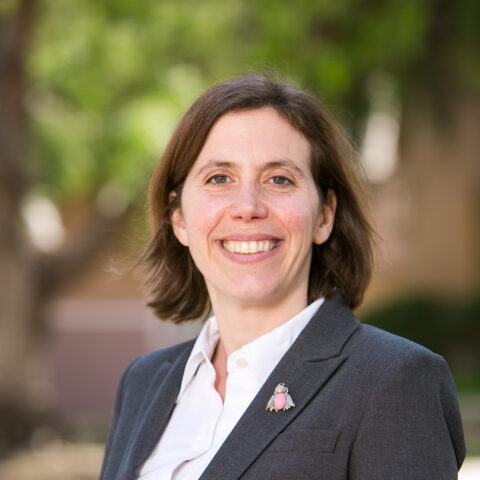
Mireille Jacobson, PhD
Associate Professor, USC Leonard Davis School of GerontologynCo-Director, Aging and Cognition Research Program, USC Schaeffer Centern

Johanna Thunell, PhD
Research Scientist, USC Schaeffer Center for Health Policy and EconomicsnProgram Administrator, CeASES ADRD
Past Event
Supplementary Material
Dr. Maria Corrada-Bravo – Dementia and Cognition in the Oldest-Old: Insights from Two Longitudinal Cohort Studies
Dr. Sean Curran – Genetics of Alzheimer’s Disease
Dr. David Bennett – Disease Pathology
- Attributable risk of Alzheimer’s dementia attributed to age‐related neuropathologies
Boyle, P. A., Yu, L., Leurgans, S. E., Wilson, R. S., Brookmeyer, R., Schneider, J. A., & Bennett, D. A. (2019). Attributable risk of Alzheimer’s dementia attributed to age‐related neuropathologies. Annals of neurology, 85(1), 114-124.
- NIA-AA research framework: toward a biological definition of Alzheimer’s disease
Jack Jr, C. R., Bennett, D. A., Blennow, K., Carrillo, M. C., Dunn, B., Haeberlein, S. B., … & Silverberg, N. (2018). NIA-AA research framework: toward a biological definition of Alzheimer’s disease. Alzheimer’s & Dementia, 14(4), 535-562.
- To what degree is late life cognitive decline driven by age-related neuropathologies?
Boyle, P. A., Wang, T., Yu, L., Wilson, R. S., Dawe, R., Arfanakis, K., … & Bennett, D. A. (2021). To what degree is late life cognitive decline driven by age-related neuropathologies?. Brain, 144(7), 2166-2175.
Dr. Julie Zissimopoulos – Drug Therapies for Chronic Conditions and Risk of AD/ADRD: A Real World Data Approach
- Drug therapies for chronic conditions and risk of Alzheimer’s disease and related dementias: A scoping review
Thunell, J., Chen, Y., Joyce, G., Barthold, D., Shekelle, P. G., Brinton, R. D., & Zissimopoulos, J. (2021). Drug therapies for chronic conditions and risk of Alzheimer’s disease and related dementias: A scoping review. Alzheimer’s & Dementia, 17(1), 41-48.
- The association of multiple anti-hypertensive medication classes with Alzheimer’s disease incidence across sex, race, and ethnicity
Barthold, D., Joyce, G., Wharton, W., Kehoe, P., & Zissimopoulos, J. (2018). The association of multiple anti-hypertensive medication classes with Alzheimer’s disease incidence across sex, race, and ethnicity. PloS one, 13(11), e0206705.
Dr. Neda Jahanshad – Population Neuroimaging of Healthy Aging and Neurodegenerative Disorders
Dr. Jessica Langbaum – Leveraging Biomarkers for the Treatment and Prevention of Alzheimer’s Disease
Dr. Eileen Crimmins – Blood-Based Biomarkers Linked to Neurodegeneration in Population Surveys
Dr. Priscilla Novak – NIA Division of Behavioral and Social Research (BSR) Priorities and Opportunities ADRD Research
Dr. Jennifer Manly – Illuminating Pathways to Brain Health Equity: Investigation of Social and Structural Drivers of Cognition and ADRD Biomarkers
Dr. Helena Chang Chui – Vascular Contributions of Dementia
Dr. Jennifer Ailshire – Environmental Determinants of Cognitive Health and Dementia
Dr. Paul Aisen – The Alzheimer’s Disease Therapeutic Landscape
Dr. David Reuben – Clinical Care of Persons with Dementia and their Caregivers
- An Alternative Payment Model To Support Widespread Use Of Collaborative Dementia Care Models
Boustani, M., Alder, C. A., Solid, C. A., & Reuben, D. (2019). An alternative payment model to support widespread use of collaborative dementia care models. Health Affairs, 38(1), 54-59.
- Associations Between Neuropsychiatric Symptoms and Neuropathological Diagnoses of Alzheimer Disease and Related Dementias
Devanand, D. P., Lee, S., Huey, E. D., & Goldberg, T. E. (2022). Associations between neuropsychiatric symptoms and neuropathological diagnoses of Alzheimer disease and related dementias. JAMA psychiatry, 79(4), 359-367.
- Dementia Prevention and Treatment: A Narrative Review
Reuben, D. B., Kremen, S., & Maust, D. T. Dementia Prevention and Treatment: A Narrative Review. JAMA Internal Medicine.
Dr. Stefania Forner – State of Alzheimer’s Research
This program is supported by the National Institute on Aging through CeASES ADRD and USC AD/ADRD RCMAR, award numbers P30AG066589 and P30AG043073.
- Event Date
- Thursday, March 07, 2024 - Friday, March 08, 2024
- Location
